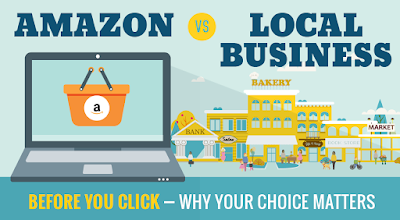What Amazon Really Means for Small Businesses

By Max Gulker From the American Institute for Economic Research Who doesn’t love small businesses? They embody two classic American archetypes: the little guy and the hard worker. People treat them less as individual businesses, and more as barometer of what they find good and fair in our market-driven economy. There are few more effective ways to drum up public support for or opposition to a policy than arguing that it’s good or bad for small business. Lost in this narrative are the businesses themselves — a diverse array of individual actors rather than a monolithic symbol of economic virtue. Asking whether something is good or bad for small business limits our understanding of how firms and markets evolve. Nothing better embodies the array of ways revolutionary technological change reverberates through the business landscape than the impact of internet retail giant Amazon on small businesses. Thinking carefully about that impact requires us to unpack the many kinds of firms we...



